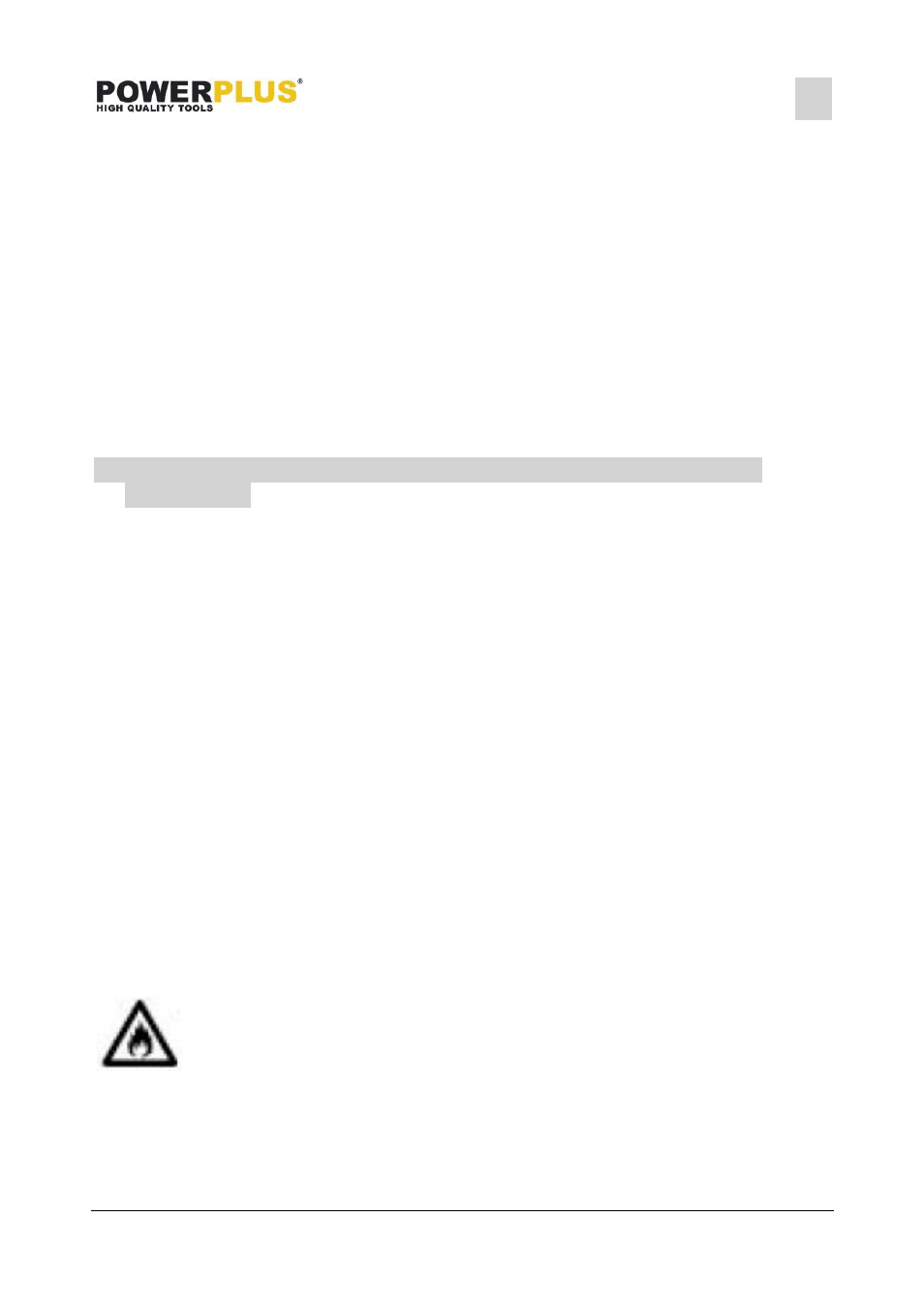Batteries, Chargers – Powerplus POWX0075LI JIGSAW 18V LI-ION ONE FITS ALL EN User Manual
Page 6

POWX0075LI
EN
Copyright © 2013 VARO
P a g e
| 6
www.varo.com
When using jig saws ear protectors and a face mask should be worn. Exposure to noise
can cause damage to hearing.
Do not use the jig saw to cut asbestos or materials containing asbestos.
Do not leave power tools running unattended. Always switch off and do not put down or
leave until it has stopped completely.
Long hair must be covered. Do not work in loose fitting clothing.
Be careful when working on walls. Damage to power supply lines, gas or water pipes can
lead to dangerous situations. Use appropriate detectors to establish whether there are
concealed wires or pipes in the working area.
Secure the work piece. The work piece is only secure if it is held by work-holding devices
or in a vice.
Caution: saw blades can get very hot.
Saw blades must be kept sharp and in good condition. Replace partially fractured and
broken saw blades immediately.
Work calmly and evenly with the jig saw. You will thus avoid accidents and the saw blades
and the jig saw will last longer.
7 ADDITIONAL SAFETY INSTRUCTIONS FOR BATTERIES AND
CHARGERS
7.1
Batteries
Never attempt to open for any reason.
Do not store in locations where the temperature may exceed 40 °C.
Charge only at ambient temperatures between 4 °C and 40 °C.
Charge only using the charger provided with the tool.
When disposing of batteries, follow the instructions given in the section “Protecting the
environment”.
Do not cause short circuits. If connection is made between the positive (+) and negative (-)
terminal directly or via accidental contact with metallic objects, the battery is short circuited
and an intense current will flow causing heat generation which may lead to casing rupture
or fire.
Do not heat. If batteries are heated to above 100 °C, sealing and insulating separators
and other polymer components may be damaged resulting in electrolyte leakage and/or
internal short circuiting leading to heat generation causing rupture or file. Moreover do not
dispose of the batteries in fire, explosion and/or intense burning may result.
Under extreme conditions, battery leakage may occur. When you notice liquid on the
battery, proceed as follows:
Carefully wipe the liquid off using a cloth. Avoid skin contact.
In case of skin or eye contact, follow the instructions below:
Immediately rinse with water. Neutralize with a mild acid such as lemon juice or
vinegar.
In case of eye contact, rinse abundantly with clean water for at least 10 minutes.
Consult a physician.
Fire hazard! Avoid short-circuiting the contacts of a detached battery. Do
not incinerate the battery.
7.2
Chargers
Use the charger provided with the tool only to charge the battery
Never attempt to charge non-rechargeable batteries.
Have defective cords replaced immediately.
Do not expose to water.
Do not open the charger.
